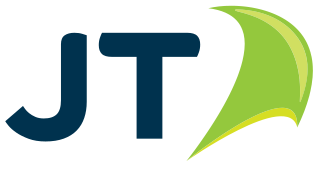The telecommunications and postal services market in Greece is regulated by the Hellenic Telecommunications and Post Commission (EETT).
Telecommunications in Latvia encompass a broad range of services including the internet, telephones, television, and radio.
Telecommunications in Lithuania include internet, radio, television, and telephony.

Telecommunications infrastructure in South Africa provides modern and efficient service to urban areas, including cellular and internet services. The Independent Communications Authority of South Africa (ICASA) is the watchdog of the telecommunications in the country.
The Syrian Ministry of Communications retains governmental authority over the internet in Syria. Prior to the Syrian civil war, telecommunications in Syria were slowly moving towards liberalization, with a number of licenses awarded and services launched in the Internet service provision market. The initiative reflected the government's change in attitude towards liberalization, following its promise to the European Union to liberalize markets by 2010. All other forms of fixed-line communications are provided by the state-owned operator, Syrian Telecom (STE).
Telecommunications in Albania include radio, television, fixed and mobile telephones, and the Internet.
Telecommunications in Austria encompass highly developed and efficient internet and telephone networks, complemented by a number of radio and television broadcast stations.

Hellenic Telecommunications Organisation S.A. is the largest technology company in Greece. It is one of the three largest companies listed in the Athens Stock Exchange, according to market capitalization.

JT Group Limited is the parent company of several subsidiaries including Jersey Telecom Limited and Wave Telecom Limited. Jersey Telecom is the former monopoly operator in the Bailiwick of Jersey. JT provides telecommunications, Internet access and other services, mostly within the Channel Islands.
Nova Telecommunications & Media S.M.S.A. is a telecommunications company in Greece which provides broadband, television, mobile and fixed services. It also offers satellite services in Cyprus. It was traded on the Athens Exchange until its delisting in 2021.
Internet access is widely available in New Zealand, with 94% of New Zealanders having access to the internet as of January 2021. It first became accessible to university students in the country in 1989. As of June 2018, there are 1,867,000 broadband connections, of which 1,524,000 are residential and 361,000 are business or government.
Since its beginnings in 1995, the Internet in Malaysia has become the main platform for free discussion in the country's otherwise tightly controlled media environment. As of Q1 2017, Malaysia had broadband penetration rates of 103.6% and 81.8%.
Internet in Belgium has a high level of adoption and engagement, with a 93% uptake rate among individuals as of 2022, higher than the EU average of 89%. The country is on par with the EU average regarding digital skills, with 54% of its population having at least basic digital competencies. Illustrated through initiatives like the BeCentral digital campus, Belgium has created programs to boost digital literacy, and has trained over 425,000 students since 2017 to narrow the digital skills gap.

Internet usage in Ireland was reported at a 95% rate among individuals by 2022, higher than the European Union (EU) average of 89%. According to the European Commission's Digital Economy and Society Index (DESI) 2023 report, 70% of Irish adults had at least basic digital skills in 2021, above the EU average of 54%. Additionally, 77% demonstrated basic digital content creation skills, exceeding the EU average of 66%. Ireland's National Digital Strategy, along with the 10-year Adult Literacy for Life strategy, aims to enhance digital competencies across the workforce and society.
The Internet in Croatia became a reality in November 1992 when the first international connection linking Zagreb and Vienna became operational.
Internet in Portugal reached an 88% household penetration rate in 2022, with notably higher access rates in households with children. Among individuals aged 16 to 74, mobile internet use is prevalent, at 81.8%, primarily for communication and information access.

The term "Internet in Poland" refers to various aspects related to the state of the Internet in the Republic of Poland. This encompasses issues such as Internet access, governance, freedom, and infrastructure, as well as social, economic, and political factors that contribute to the digital landscape in Poland.
Broadband Internet in Israel has been available since the late 1990s in theory, but it only became practically accessible to most customers in 2001. By 2008, Israel had become one of the few countries with developed broadband capabilities across two types of infrastructure—cable and DSL—reaching over 95% of the population. Actual broadband market penetration stands at 77%, ranked 7th in the world. In 2010, Israel was ranked 26th in The Economist's Digital Economy Rankings. In 2022, Israel was ranked first for digital quality of life by Surfshark.
In Romania, there are 18.8 million connections to the Internet. Romania's country code is .ro. The .eu domain is also used, as it is shared with other European Union member states. There were over 600 000 domains registered under .ro at the end of 2012.

Internet in India began in 1986 and was initially available only to the educational and research community. General public access to the internet in India began on 15 August 1995. By 2023, India had more than 900 million Internet users. It is reported that in 2022 an average mobile Internet consumption in India was 19.5 GB per month and the mobile data usage per month rose from 4.5 exabytes in 2018 to 14.4 exabytes in 2022.



